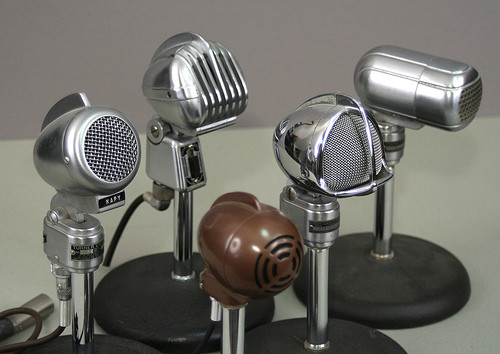
Last Monday, we released the first episode of the Geeks and God Podcast since I became one of the hosts. There were a lot of lessons to be learned in the process. Here are a few of the things I discovered.
1. Have a Detailed Outline
This is really obvious, but I wasn't really aware of how detailed an outline I needed. My short list of notes wasn't nearly enough, especially since we recorded things out of order. There were a lot of things I forgot, making our transitions rougher. I needed better notes about all aspects of the show, not just the one being recorded at any given time.
2. Record Segments First
For various reasons, we weren't able to record most of the drop-in segments of the show until after recording the intro and glue pieces. It was very difficult to make this sound natural when we didn't know how things would flow. The best transition was the one coming out of the interview, because it was the last piece to be recorded, and I knew exactly where it was going next.
Some of the worst spots were the ones that I went back and re-recorded, and the parts I was gluing together simply didn't connect.
3. Use Audio Bumpers
The original hosts of the podcast generally recorded their whole show in one sitting. Even when they inserted prerecorded elements, they did that during their recording session and listened to those pieces while building the show. This enabled a smooth flow throughout the whole episode.
The new podcast will use a lot of prerecorded elements with the connecting segments being recorded over Skype calls to tie it all together. Even if we get really good at recording the glue pieces, the listeners are going to need audible cues to indicate that we're moving from one segment of the show to another. Short audio bumpers should be an effective way to fix this.
4. Use a Clock
Because we'd planned this first episode to be an introductory show, I was expecting it to be a short one. Instead, every segment ran over our initial time estimates and we went about fifteen minutes long. The outline should include time estimates and we should use a timer to help us stick to it. This also alleviates the fact that I tend to talk too much in general, which leads me to my next point.
5. The More the Merrier
For a podcast with five hosts, not only did I talk too much, but we didn't have enough natural banter in the intro segment where everyone was involved. The only place where this really came out well was in the outtake I used at the end. Some of this will come with experience, but the best way to remedy this is to shorten the outline a bit and leave time to just talk. We need to change this, or else the podcast won't be fun to listen to.
6. Press Record While You're Getting Ready
Everything sounds better when the hosts are more relaxed, and I found that one of the best ways for me to do this was to press record early. My mind tends to go completely blank the moment that I start recording, and after a few false starts, I get so flustered that nothing comes out of my mouth right. Hitting record and then chatting a bit more before launching in tends to give me a chance to relax, and it's easy to delete the unwanted portion during editing.